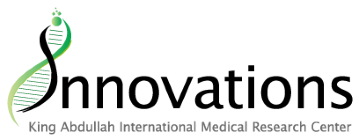
Researchers warn of major public health concerns, should policies and attitudes towards antibiotic use remain unchanged.FSTOP IMAGES GMBH / ALAMY STOCK PHOTO
A recently published study from Saudi Arabia describes widespread illegal prescription of antibiotics by pharmacistsunder pressure from an ill-informed public of the potentially dire consequences of their overuse, and even the circumstancesin which antibiotics are effective. Respondents to surveys admitted to hazardous attitudes and behaviours towardantibiotic use. The researchers suggest this is a wake-up call for policymakers to tighten restrictions on antibiotic dispensing and educate the public on the dangers.
The increasing problem of antimicrobial resistance has frequently been reported as one of the greatest impending public health disasters in human history. Bacteria undergo random mutations, making them tolerant to previously effective treatments.
Bacteria share their genetic traits via a process called horizontal gene transfer. By doing so, a harmless bacterium could transfer antimicrobial resistance to a pathogenicone. Antibiotic overuse increases the likelihood of this process occurring as more bacteria carry the genome for resistanceto a given treatment.
In their study, published in the Journal of Infection and Public Health, a team of researchers from King Fahd Medical Cityand King Saud bin Abdulaziz University for Health Sciences in Riyadh, Saudi Arabia surveyed 475 individuals, withthe questions revolving around two key themes: public perception towards antibiotics and their use, and the accessibility of antibiotics to the population.
The results were disconcerting: almost half of the participants used antibiotics without a physician’s consultation orprescription. Compounding this, over a third of those surveyed reported a belief that antibiotics could be used to treat viral diseases—conditions in which they haveno efficacy whatsoever. Other findings included a high propensity towards sharing antibiotics and stopping a treatment course before its completion.
The study authors urge stricter control of antibiotics, such as registering them as controlled medications and requiringtheir provision logged and monitored via a national registry. Additionally, a large-scale education campaign is recommended, targeted at prescribers and the public, to warn against self-diagnosis and medication.


